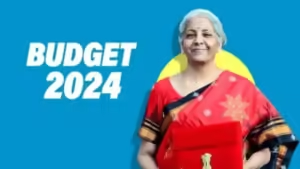GST WEEKLY UPDATE : 28/2021-22 (10.10.2021) By CA Vipul Khandhar

 By CA Vipul Khandhar, Ahmedabad
By CA Vipul Khandhar, Ahmedabad
- GSTN to soon make enhanced facilities of GST Return, Refund, Registration available on GST portal:
Returns
- Auto-Interest Computation in R-3B/CMP-8/R-5
- Negative Liability in GSTR-3B
- Changes in Comparison Report
Refunds
- Converting IGST Refund withheld cases at ICEGATE into RFD-01
- Refund of Advances paid but supplies not made under development
- Refund to be filed by the Unregistered person under development
Registration
- Mandating Aadhaar Authentication at BO for the taxpayers applying for —Refund and Revocation application
- Additional document upload functionality for taxpayer in GST REG 05/REG19/REG20 and to show uploaded document to BO
- Temp ID —search functionality, enhancements like —reset password, change email /mobile number and link it with new registration process.
- Enabling EVC option even for Companies/ LLP in registration module
- Geo-Spatial data Integration for taxpayers to help declaring correct address
Miscellaneous
- Advance Ruling Search Functionality
- Appeal, Rectification of Mistakes and Appeal Effect related Functionalities
- Recon and on demand call APIs for Bills of Entry data of Customs
- Front Office Revamp to improve taxpayers experience
- AATO and validations in return, registration etc.
- Removal of Contact Details — Mobile No. and e-mail from Search Taxpayers
- CBIC Clarification Regarding Applicability Of GST Rates & Exemption:
- GST on Hitherto, Corrugated Boxes and Cartons has been@ 12%
Corrugated boxes and cartons, falling under heading 4819 attracted GST at the rate of 12% (entry 122 of 12% rate schedule), while other cartons falling under this heading attracted GST at the rate of 18%.
- Clarification regarding fresh and dried fruits and nuts gst applicability:
At present, fresh nuts (almond, walnut, hazelnut, pistachio, etc) falling under heading 0801 and 0802 are exempt from GST, while dried nuts under these headings attract GST at the rate of 5% or 12%.
The general Explanatory Notes to chapter 08 mentions that this chapter covers fruit, nuts intended for human consumption. They may be fresh (including chilled), frozen (whether or not previously cooked by steaming or boiling in water or containing added sweetening matter), or dried (including dehydrated, evaporated, or freeze-dried).
Thus, the HS chapter differentiates between fresh, frozen, and dried fruits and nuts. Fresh fruit and nuts would thus cover fruit and nuts which are meant to be supplied in the state as plucked. They continue to be fresh even if chilled.
However, fruit and nuts do not qualify as fresh, once frozen (cooked or otherwise), or intentionally dried to dehydrate, including through sun drying, evaporation or freezing, for supply as dried fruits or nuts. It may be noted that in terms of note 3 to Chapter 8, dried fruits, even if partially rehydrated, or subject to preservation say by moderate heat treatment, retain the character of dried fruits or dried nuts.
Therefore, exemption from GST to fresh fruits and nuts covers only such products which are not frozen or dried in any manner as stated above or otherwise processed. Supply of dried fruits and nuts, falling under heading 0801 and 0802 attract GST at the rate of 5% or 12% as specified in the respective rate Schedules.
- GST on heena powder
It has been clarified that pure henna powder and henna leaves, having no additives, are classifiable under tariff item 1404 90 90 and shall attract a GST rate of 5%.
- GST rate on mehdi paste
The GST rate on mehndi paste in cones falling under heading 1404 and 3305 shall be 5%.
- GST on illaichi
The circular stated that flavored and coated illaichi generally consists of Cardamom Seeds, Aromatic Spices, Silver Leaf, Saffron, Artificial Sweeteners. It is distinct from illaichi or cardamom (which falls under heading 0908). It is clarified that flavored and coated illaichi is a value-added product and falls under sub-heading 2106. It accordingly attracts GST at the rate of 18%.
- GST on fiber drum
Disputes have arisen as regards applicable GST on fiber drums, which is partially corrugated (as to whether it can be treated as corrugated or otherwise). This dispute gets resolved on account of the recommendation of the GST Council, in its 45th meeting, to prescribe a uniform GST rate of 18% on all goods classifiable under heading 4819 (with effect from 1st October 2021 under S. No. 153A of Schedule III of notification No.1/2017-Central Tax (Rate) dated 28.6.2017). “For the period prior to 1.10.2021, the Council upon taking note of the fact that there was ambiguity regarding the GST rates applicable on a Fibre Drums, because of its peculiar construction (partially corrugated), has decided that supplies of such Fibre Drums even if made at 12% GST (during the period from 1.7.2017 to 30.9.2021), would be treated as fully GST-paid. Therefore, no action for recovery of differential tax (over and above 12% already paid) would arise. However, as this decision has only been taken to regularize the past practice in view of certain ambiguity, as detailed in para 14.1, no refund of GST already paid shall be allowed if already paid at 18%,” the CBIC in the circular clarified.
- GSTN is not allowing for Preparation of E-Way Bill if IRN is generated 2 days prior:
The GSTN has been displaying errors for the preparation of E-Way bill if IRN is generated 2 days prior. It is noteworthy that the restriction which is in the form of error shown on the GST portal imposed by the GSTN. Taxpayers are facing acute difficulty in preparing the E-Way bills if the IRN has been generated 2 days prior. “GSTN is not allowing to prepare E-Way bill if IRN is generated 2 days before.
- Recent AAR & Judicial Decisions
(i) Decision of Hon’ble Kerala Highcourt Regarding Detention of vehicle in absence of e-way bill not justified if purchased for personal use and temporary vehicle registration obtained:
(Applicant – VST AND Sons (P.) Ltd)
The assessee was located in Thiruvananthapuram (Kerala) and it purchased a vehicle for personal use from Coimbatore (Tamil Nadu). The proper officer detained the vehicle while being transported from Coimbatore to Thiruvananthapuram for reason that it was transported without e-way bill. The assessee filed writ petition challenging the detention of the motor vehicle. The learned Single Judge allowed the writ petition and quashed the detention order. The department field appeal against it.
The Honorable High Court observed that the goods which are classifiable as used personal and household effect falls under rule 138(14)(a) of the CGST Rules, 2017 and exempted from the requirement of e-way bill. In the present case, the assessee had purchased the vehicle after payment of IGST. A temporary registration was also taken apart from the motor vehicle insurance and the vehicle had in fact run 43 Kms. The Court relied upon the decision in KUN Motor Co. (P.) Ltd. v. Asstt. STO [2018] 100 taxmann.com 271 (Ker.) wherein it was held that used vehicles, even if it has run only negligible distances are to be categorized as ‘used personal effects’. Therefore, it was held that there was no merit in this appeal and liable to be dismissed.
(ii) AAR On 18% GST payable on Services of Works Contract for Irrigation, Construction Work supplied by sub-contractor to Sub-Contractor:
(Applicant – M/s. Kababhai Popatbhai Savalia)
The Gujarat Authority of Advance Ruling (AAR) held that 18% GST payable on services of works contract for irrigation, construction work supplied by sub-sub contractor to sub-contractor.
The applicant, is engaged in providing works contract service directly to sub-contractors who execute the contract with the main contractor for original contract work with the irrigation department (State of Gujarat). The applicant has sought the clarification for the rate of tax to be levied from the sub-contractor for original contract work pertaining to irrigation and construction work (works contract). The applicant submits that they should be charged 12% GST only and not 18% as applicable in other cases.
The AAR clarified that to be eligible for being covered at Sr no 3 (iii) of said NT 11/2017 CT(R), the two conditions shall be satisfied namely Composite Supply of Works Contract to be supplied by Main Contractor to Government and Supply by way of construction, erection, commissioning, installation, completion, fitting out, repair, maintenance, renovation, or alteration of canal, dam or other irrigation works. “GST rate on subject supply is 18% for services supplied by the sub sub-contractor to sub-contractor M/s Radhe and supply merits entry at Heading 9954, Entry No 3(ii) of Notification No.11/2017-CT(R) dated 28-6-17,” the AAR ruled.
(iii) AAR On Supply of cooking gas via pipeline with Maintenance Service is Composite Supply:
(Applicant – Masterly Kolkata Facility Maintenance Pvt Ltd.)
It is submitted by the applicant that the apartment owners are at liberty either to get the supply of cooking gas through the applicant or they may procure on their own. However, the applicant has not furnished any document in support of such submission. It is, therefore, not clear to us whether an apartment owner has to enter into a separate agreement/contract with the applicant for procuring pipeline gas supply. The applicant has not furnished any documents before us regarding terms and conditions towards supply of gas through pipeline and whether the applicant has to follow any guidelines issued by the appropriate authority for supply of gas through pipeline.
We therefore observe that in the instant case, the applicant is providing facility and property management services to each and every apartment owner of the project. This service includes maintenance and repair services related to supply of cooking gas through pipeline and is also applicable to the apartment owner who is not availing the pipeline gas supply. So, when an apartment owner intends to get supply of cooking gas through pipeline, she/he will be provided the same along with the services for which she/he has already been paying to the applicant. So, supply of cooking gas through pipeline is inextricably linked with facility and property management services as provided by the applicant.
It therefore follows that in spite of issuance of separate invoices as “GAS CHARGES BILL” for consumption of gas, supply of gas through pipeline is found to be naturally bundled with facility and property management services and are supplied in conjunction with each other. The instant supply, therefore, shall be treated as “composite supply” as defined under clause (30) of section 2 of the GST Act where the principal supply is facility and management services.
Disclaimer:
This publication contains information for general guidance only. It is not intended to address the circumstances of any particular individual or entity. Although the best of endeavour has been made to provide the provisions in a simpler and accurate form, there is no substitute to detailed research with regard to the specific situation of a particular individual or entity. We do not accept any responsibility for loss incurred by any person for acting or refraining to act as a result of any matter in this publication.
(Author is a well know Chartered Accountant from Gujarat)





